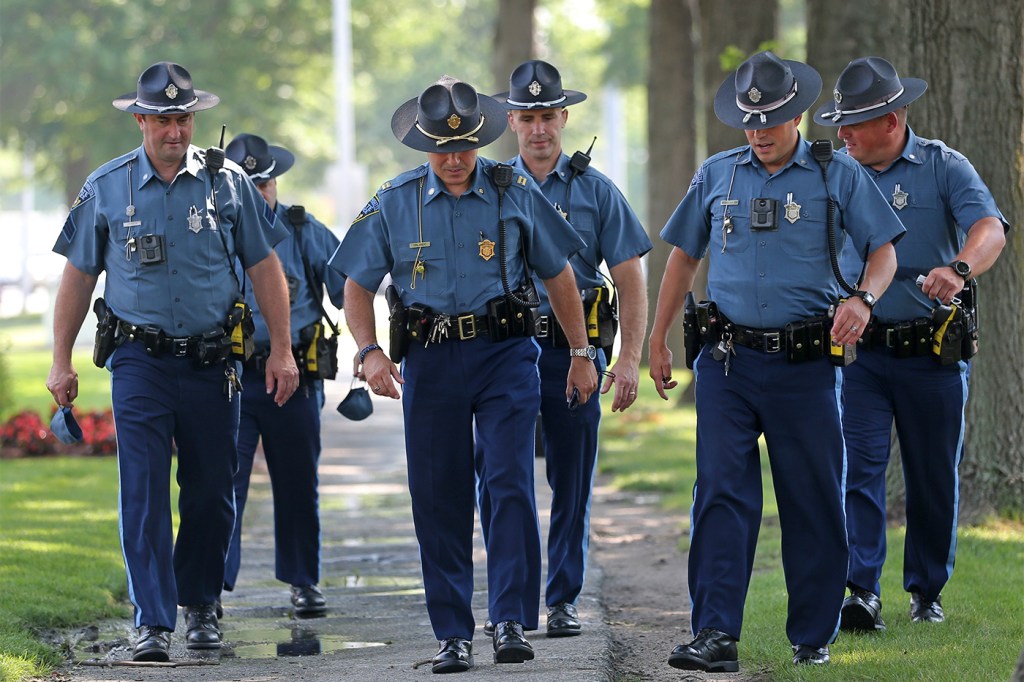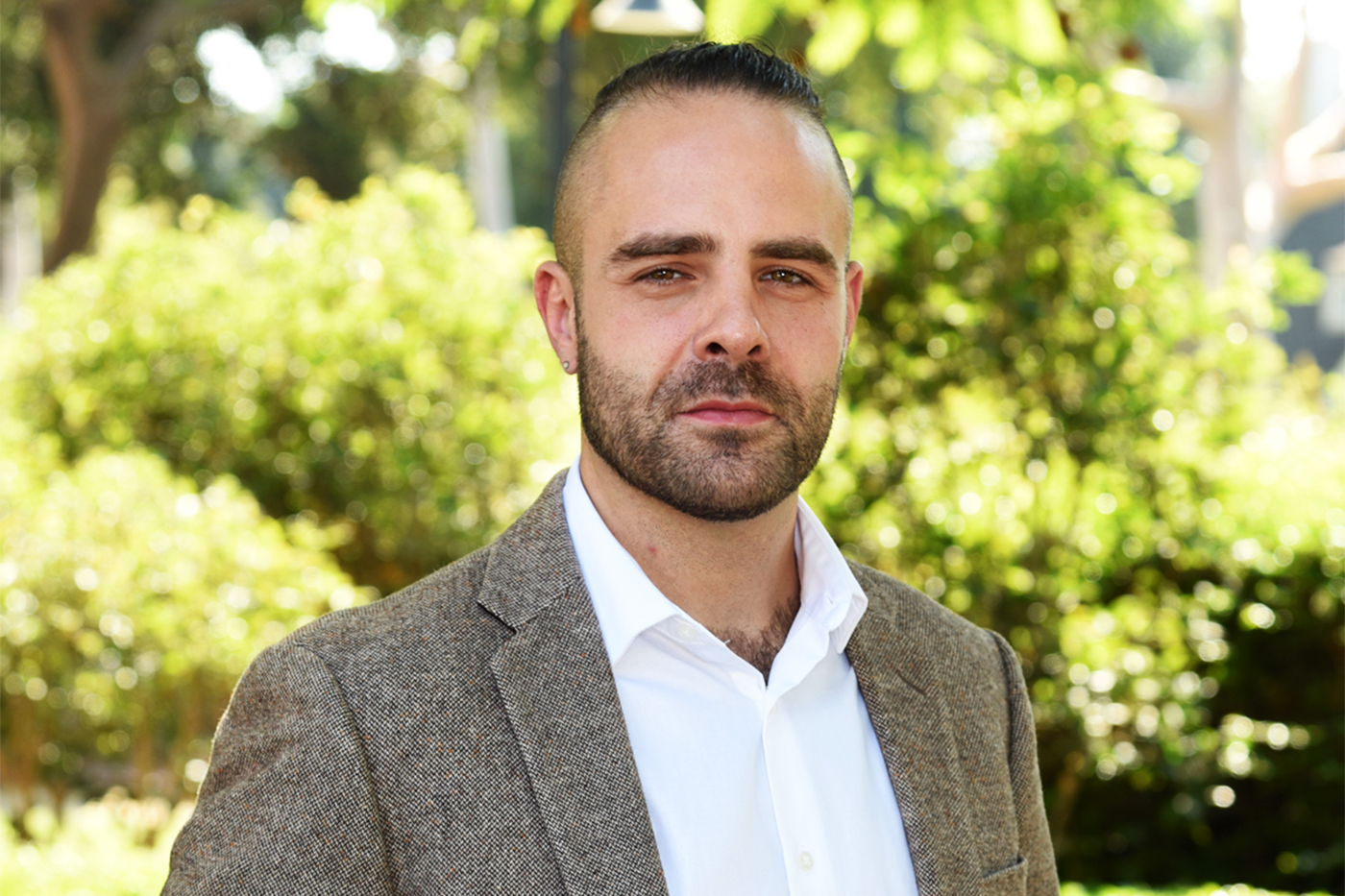Massachusetts police discriminate in traffic stops, previously unreleased data reveals

A recent analysis of Massachusetts traffic stop data reveals persistent and widespread discrepancies in how often police ticket white drivers and drivers of color.
The data, which includes all traffic stops between 2014 and 2022, was acquired and analyzed as part of an investigation by the USA Today Network. USA Today brought on Matthew Ross, an associate professor of public policy and economics at Northeastern, to assist with analyzing the data, given his experience doing similar work in other states.

In addition to the investigative stories published by the the USA Today Network, Ross produced his own analysis of the data. He says the results are clear: The data shows “fairly large and persistent disparities” between how often Massachusetts police stop white drivers and, specifically, Black and Hispanic drivers.
Ross’ report, funded by the Community to Community Impact Accelerator, found that there is a 2% increase in the probability that a Black/African American driver is stopped during the day, a 6% increase for Hispanic/Latinx drivers and 3% for all minorities. According to Ross, that means Massachusetts police excessively stopped as many as 11,564 and 33,543 Black and Hispanic drivers, respectively, between 2014 and 2022, or 1,284 and 3,727 per year.
“In relative terms that might sound small, but, having done this in a number of other states across the country, it’s pretty in line with what we tend to estimate when we find disparities in policing,” Ross says. “This is pretty consistent with race-based traffic enforcement.”
Those numbers are further complicated by what the USA Today Network found in its investigation of the data: Massachusetts police have consistently mislabeled men with Hispanic last names as white on traffic citations. Between 2014 and 2020, in 28% of traffic stops statewide, police identified drivers with Hispanic surnames as white, according to the news organization’s investigation. This practice skews the data, potentially obfuscating further bias in policing throughout the state, the USA Today Network reports.
The relatively large and persistent disparity suggests that Massachusetts police are more likely to stop a person of color during periods when they can more easily discern their race/ethnicity.
Matthew Ross, an associate professor of public policy and economics at Northeastern
Ross used what is called a solar visibility analysis and Veil of Darkness test, an approach that compares traffic stops made in daylight to stops made when it’s dark outside, inside what the so-called “veil of darkness.”
Why? As Ross’ analysis concludes: “the relatively large and persistent disparity suggests that Massachusetts police are more likely to stop a person of color during periods when they can more easily discern their race/ethnicity. The conventional interpretation of these results is that it is indicative of potential discrimination by Massachusetts police against motorists of color.”
Using that method, Ross was able to identify 33 individual police agencies that were more likely to have stopped a person of color in daylight relative to darkness and where that disparity was estimated with a high confidence level. Of those 33 agencies, 11 were in the Massachusetts State Police and 22 were from various municipal police forces.
However, what is just as significant as the numbers in this data is the fact that it was released at all, Ross adds.
In 2004, experts in Northeastern’s Institute on Race and Justice released a racial and gender profiling analysis of Massachusetts traffic stop data from 2001 to 2003. However, the state didn’t conduct another study until 2022, and even then it was limited in its scope and findings, Ross says.
The state also used a Veil of Darkness test in its analysis, but the 2022 report, ultimately, found that nonwhite drivers were 36% less likely to be stopped during the day than at night. Ross’ own analysis directly contradicts these findings.
“I pretty clearly identified disparities across all policing agencies in Massachusetts from 2014 to 2022, and I identified 33 individual agencies,” Ross says. “This public report that came out from [the state] last year basically said neither of those things was true.”
As an expert in the field, Ross wasn’t even sure Massachusetts had been collecting traffic stop data until USA Today Network reporters reached out to him and showed him years’ worth of data acquired through Freedom of Information Act requests.
Having done similar work in states like Connecticut and Rhode Island, Ross says Massachusetts agencies’ refusal to make this data publicly accessible is not the norm.
“In my experience, the policing data [in Massachusetts] is under much more strict lock and key than any other jurisdiction I’ve dealt with,” Ross says.
Ross notes there is one important caveat: The data only includes traffic stops that ended with tickets, not warning stops. Massachusetts collected this data when the 2004 report was released, but, as far as Ross and other experts know, there’s no longer any comprehensive tracking of undocumented warning stops in the state.
It could mean the disparities in how Massachusetts police stop drivers of color are even higher.
“In Connecticut and Rhode Island, which are relatively comparable to Massachusetts, the volume of warnings is almost 50/50 to tickets in some years,” Ross says. “So, there’s a ton of stops you can’t even necessarily assess. … It’s actually probably true that [these numbers are] too small, and if you had the warnings data, it’s potentially much larger.”
Cody Mello-Klein is a Northeastern Global News reporter. Email him at c.mello-klein@northeastern.edu. Follow him on X/Twitter @Proelectioneer.






